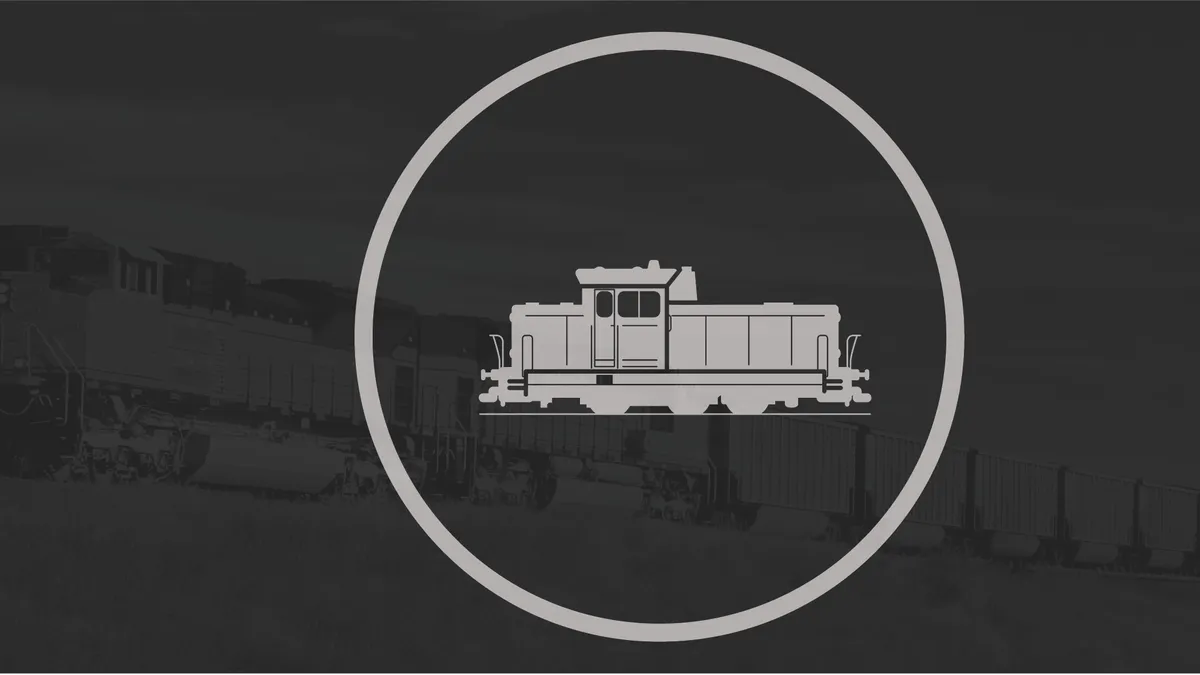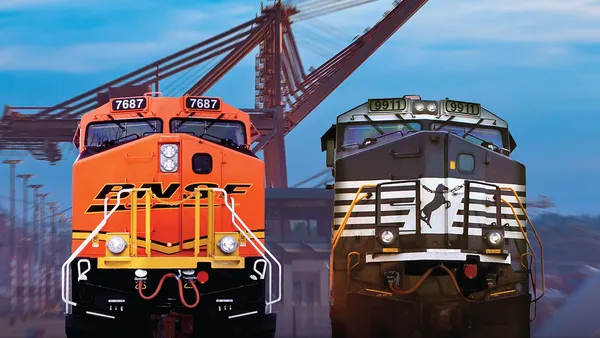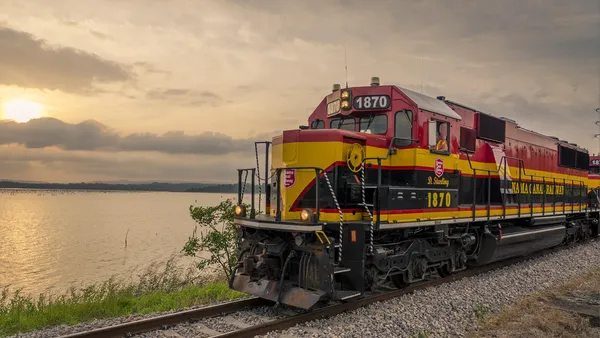Dive Brief:
- November was the ninth month in a row in which the total rail freight carloads have fallen year-over-year, according to numbers released by the Association of American Railroads. Both carloads and intermodal traffic saw year-over-year declines.
- Railroads originated 955,579 carloads in November and 1,019,766 intermodal containers, down 7.5% and 7.4% compared to the same period last year, according to AAR.
- "Rail traffic continues to struggle because U.S. manufacturing is soft, trade disputes and the uncertainty they entail are ongoing, and economic growth abroad isn’t what it could be," AAR Senior Vice President John T. Gray said in a statement.
Dive Insight:
AAR says there are 20 different commodity segments that showed year-over-year growth in November, including stone, clay and glass products up 4% plus primary forest products were up 3%. But these gains were offset by larger declines in coal, crushed stone and primary metal products — all down 15%, 8% and 15%, respectively.
Railroads continue to feel the impact of this drop in volume even as they report lower operating ratios as a result of cutting expenses.
"Industrial shipments are flat, while we continue to experience lower car loadings in our other business groups. Export grain shipments continued to be impacted by foreign tariffs, but with a recent outlook for China to take more ag products we hope to see some relief here," Union Pacific CFO Rob Knight said earlier this month at the Credit Suisse 7th Annual Industrials Conference after sharing an 11% year-over-year volume loss in the fourth quarter so far.
Railroads see intermodal as an important part of their future going forward as they try to convince shippers to switch from truck to rail. But the recent overcapacity in the trucking market has brought down the price of shipping by truck.
"Intermodal is then the other piece of that puzzle ... we didn't see the bulge that maybe we would have expected coming into the quarter at the peak season," Knight said. "So, it was a little flatter."
CSX CEO Jim Foote, speaking at the same Credit Suisse conference, said he expects to see intermodal growth beginning next year.
"We are excited and committed to the intermodal business both domestic and international," Foote said, highlighting it's improved on-time performance reaching 98%.
"I think that what we have done in terms of changing the network gives us the capability to not have to discount our price because we have a product that is equivalent in service or in some cases better than what can be provided by the truck from end-to-end," he said.
Multiple railroads, including CSX and Union Pacific, continue to highlight their transition to precision-scheduled railroading (PSR) as resulting in faster, longer trains with shorter dwell times. Slides shown by Kansas City Southern at the same conference show the railroad credits the PSR transition with a 14% reduction in its fleet and said it will continue this "rightsizing" in 2020.















